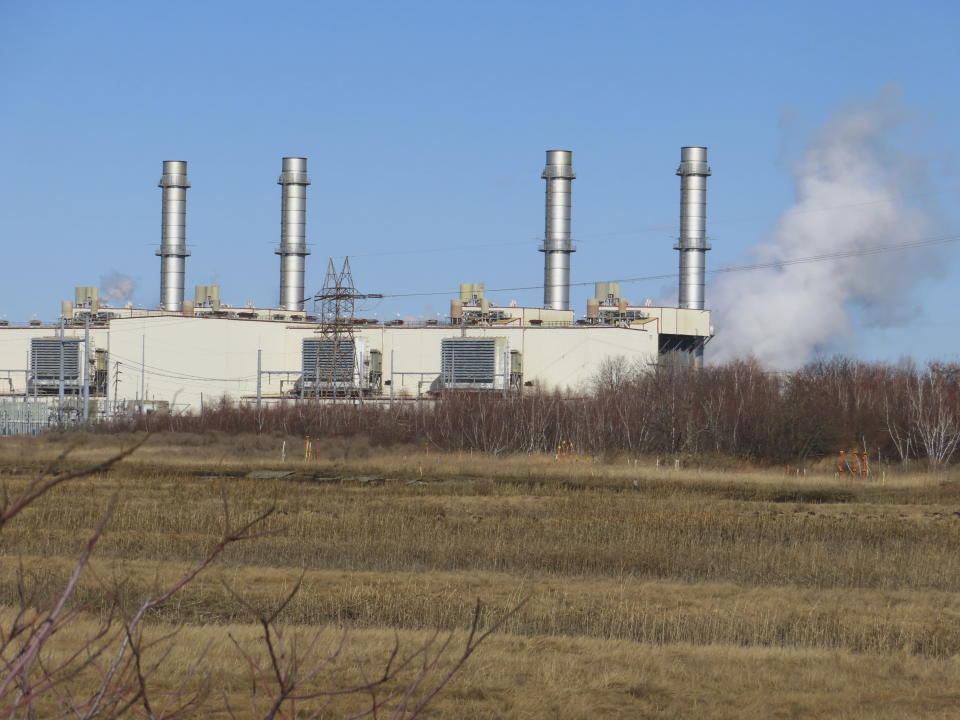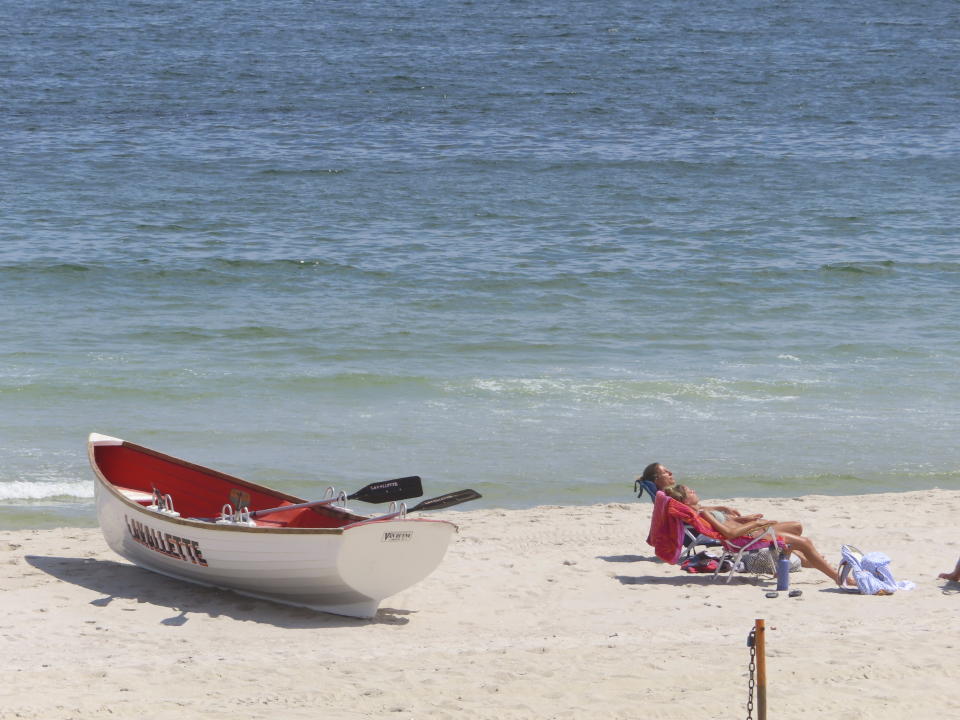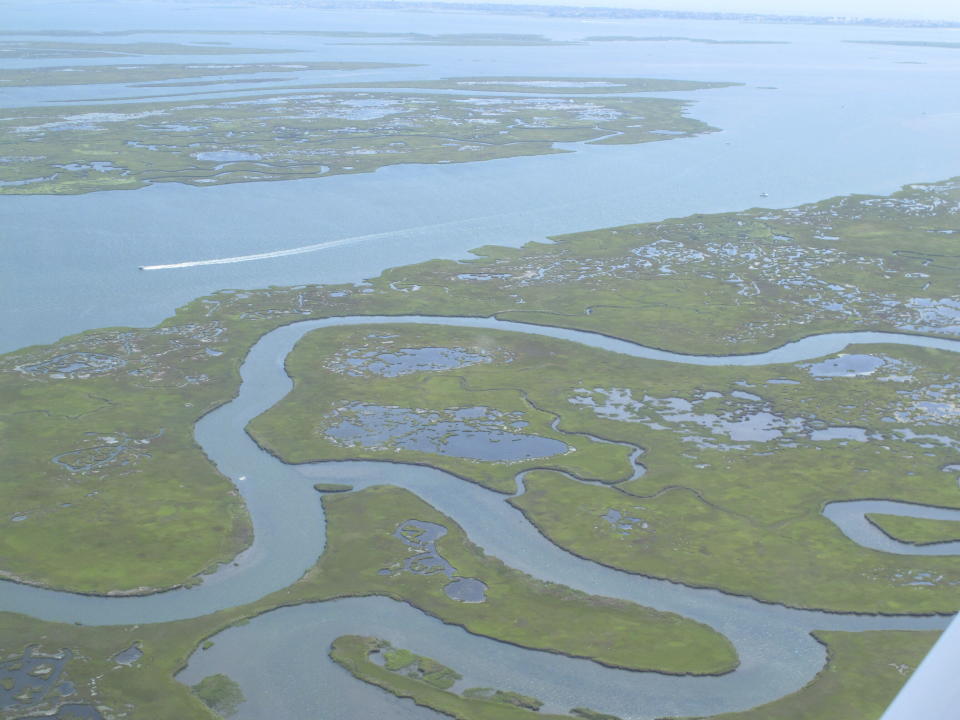New Jersey voters may soon decide whether they have a right to a clean environment
TRENTON, N.J. (AP) — New Jersey, known as much for its beaches and blueberries as for the chemical plants and refineries that line some of its major highways, is considering asking voters a fundamental question: Should the state guarantee its citizens the right to a clean environment?
A bill making its way through the state Legislature would put a question on the November general election ballot asking, “Do you approve amending the Constitution to grant every person the right to a clean and healthy environment?”
Environmentalists say the move, known as the “green amendment,” is long overdue and would enable citizens to seek redress in court if they feel their environmental rights are being violated.
But opponents, including business groups, warn that the law could have unintended consequences. They say it could enable foes of one of New Jersey's main efforts to fight climate change — building offshore wind projects — to challenge and kill the projects in court, saying their right to a clean ocean was being violated.
Three states — Montana, New York and Pennsylvania — have established constitutional rights to a clean environment via similar amendments, but another 15 either are considering such measures or are expected to do so soon, said Maya van Rossum, founder of Green Amendments For The Generations and head of the Delaware Riverkeeper organization in New Jersey.
“We have communities in New Jersey thar are being harmed by air and water pollution despite all these laws we have on the books to protect them,” she said, adding that the proposal, if enacted, would reorient environmental protection toward preventing pollution rather than acting after the fact to address it.
“Right now, governmental officials may think it's a good idea to protect the environment and may want to do it, but they don't have a constitutional demand to do it,” she said.
Democratic state Sen. Linda Greenstein, sponsor of the bill, said it would guarantee the fundamental parts of a healthy daily life.
“That means clean water to drink, clean air to breathe and enjoyment of our natural spaces, constitutionally guaranteed to every New Jerseyan today and tomorrow," she said. "These things should not be considered a privilege afforded to some.”
But the bill does not spell out how the law would work in practice. It designates no entity as the enforcer of the law or the adjudicator of disputes regarding it. That would appear to leave the court system as the main avenue for those who feel aggrieved.
“It would wind up in front of a judge,” Greenstein acknowledged, although she said some preliminary steps including mediation could also be used.
She said lawmakers may need to add language spelling out how the law would work and be enforced.
Ray Cantor, of the New Jersey Business and Industry Association, said the law could have unintended consequences. He said it could enable people who oppose offshore wind power projects to challenge them in court.
“Our concern is many don’t understand the ramifications of this resolution,” he said.
Greenstein and officials with several environmental groups said they do not consider that likely.
The measure would decree that "the state’s natural resources, among them its waters, air, flora, fauna, climate, and public lands, are the common property of all the people, including both present and future generations. The state shall serve as trustee of these resources, and shall conserve and maintain them for the benefit of all people.”
But Bill Wolfe, a former official with the state Department of Environmental Protection and a frequent critic of the agency, said the state already is the trustee of those resources under the Public Trust Doctrine, a legal concept dating back to the Roman Empire that the state has adopted in other areas, including access to beaches and waterways.
“The bill is deeply flawed, and I believe it is more performative than a serious effort,” he said.
Doug O'Malley, of Environment New Jersey, called the bill “the fire axe behind glass that you break in case of emergency.”
“You don't use it every day, but it's good to know you have it there in case you need it,” he said.
He and others said they do not expect a flood of litigation as a result of the new law, citing the experiences of other states that have enacted similar provisions.
Several measures have been added to the bill through amendments, including adding “a safe climate” to the list of protected resources, and adding environmental justice concerns to it, according to Democratic Sen. Bob Smith, chairman of the senate committee that advanced the bill on Thursday.
It still requires multiple levels of approval before being placed on the November ballot.
___
Follow Wayne Parry on X, formerly Twitter, at www.twitter.com/WayneParryAC





